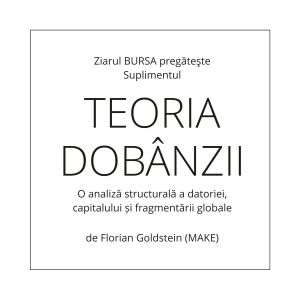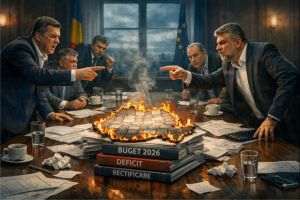The network of people involved in this deposits affair spans two continents and five countries, but the players are the same, a few exceptions aside
Rompetrol and Niculae Vidu received leases from the Năstase Government as well
Prime Minister Emil Boc had none other than the former lawyer of Paszkany and Tăriceanu investigate the Sterling business!
The deposits in the Black Sea could be a 25 billion Euros bet. Some voices say this amount is exaggerated. But exaggerated though it may be, some people bet on it as far as sixteen years ago. Ever since then, a lawyer and a politician have been a part of this project. The lawyer is now representing Sterling Resources, and the politician is no less that a Secretary of State in the Ministry of the Environment, the institution which is supposed to grant the license needed to begin the exploitation of the Black Sea oil and gas deposits.
"Romania is known as a country with a high potential in the area of mineral resources, especially oil, gas, salt, gold, silver and nonferrous ore".
This is the official presentation found on the website of Romania"s National Agency for Mineral Resources. The site does not mention the players who traded these resources in the last sixteen years.
Following the ruling in Hague in the Serpent Island case, Romania"s potential in the area of gas and oil resources increased. But the joy of the International Court of Justice"s ruling in favor of Romania was quickly overshadowed by the concessions made by the former government.
It quickly becomes obvious that a handful of people who were in-the-know on this affair, knew both the potential of those deposits, as well as had information on the high probability of Romania receiving the rights over those resources, after Hague. The players involved in the Black Sea affair are somehow connected to the Rompetrol business, as revealed by the vot.ro website.
The Tăriceanu government was not the only one to approve petroleum leases to the parties involved in the Sterling affair. As far back as 2002, Millenium International Resources (a company with British capital) received the right to explore two perimeters. Millenium"s representative was the same Niculae Vidu, head of Sterling. Vidu later became the sole shareholder of Millenium.
One year later, Niculae Vidu was appointed administrator of Rompetrol Well Services. In 2004, Rompetrol received the right to explore two blocks in Mehedinţi and Satu Mare. In 2005, Rompetrol took over three more oil fields, from Forest Oil International, which had received those concessions three years earlier from the Romanian state. In 2007, Rompetrol assigned part of the rights over the deposits in Mehedinţi to Zeta Petroleum, a company represented in Bucharest by former Rompetrol vice-president, Bogdan Popescu, who was on the board of Rompetrol Well Services alongside Niculae Vidu. The deposits in the Black Sea were sold several times in the last sixteen years, but there are legitimate suspicions that the same parties were behind the deals.
And the coincidences don"t stop there. They can help us understand part of the affair, but not all of it. Rompetrol and Sterling, as well as the companies that came before them, are not the only parties to gain, nor are they the parties who stood to gain the most in the splitting of these resources.
If the government lead by Mr. Boc and Romania"s current leaders truly wants to shed some light in this gas and oil fields affair, then it must extend its investigation to all the leases made in the last sixteen years. For now, Prime-Minister Boc chose to appoint as head of the investigative body the lawyer involved in the Trigranit- Esplanada affair, who was also an associate of former Prime-Minister Călin Popescu Tăriceanu.
Until the Government can tell us whether these concessions were made according to the law, and how their exploitation can continue in a fair manner, the subject of the concessions will remain another case of suspected corruption.







































1. Whaaaaaaaaaaaat?
(message sent by Andrei on 17.02.2009, 13:16)
Once again the romanian press has divorced itself from logic. A poorly written piece and quite clearly poorly researched. I wonder why this journalist and I use the term loosely, gives us a steady barrage of innuendo and language such as "suspected corruption" ? Has he bothered to read the law and find out if the law was applied for the concession agreements? Oh and by the way how many articles has this journalist written about the privatization of Petrom?
2. Homework
(message sent by oilman on 18.02.2009, 03:41)
It is much easier to write an article about the so called bad boys who stole all our (potential ?) O/G resources from the yet to be explored Black Sea than to read some simple contracts or even the LAW. The author may need to learn about homework and perhaps find out if there was any tender round when the Black Sea blocks were awarded. I am not defending either Rompetrol or the Romania government - past or current - but I simply do not like when a novice so called journalist writes about stuff he has no clue. What a shame fo a decent piece like 'Bursa'.